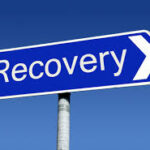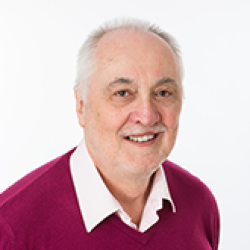Dr Norman
Claringbull
Psychotherapist
Counsellor
Psychologist
The Friendly Therapist
Call now for a free initial telephone consultation
Total confidentiality assured
In-person or video-link appointments
Private health insurances accepted
Phone: 07788-919-797 or 023-80-842665
PhD (D. Psychotherapy); MSc (Counselling); MA (Mental Health); BSc (Psychology)
BACP Senior Accredited Practitioner; UKRC Registered; Prof Standards Authority Registered
Blog Post – Aug 2014
Posted on July 30th, 2014
ADDICTIONS: (Part 2)
Last month, I blogged about how addiction grips onto its victims. This month’s Blog is about how those victims can loosen that grip. In other words, I’m blogging about addiction recovery.
Addiction recovery is much more than just a quick detox, much more than simply drying out or getting clean. That’s the easy bit. The hard truth is that real addiction recovery takes determination. It also takes perseverance and it takes as long as it takes. That’s the hard bit. In many people’s experience, there are actually three overlapping stages in addiction recovery. Real recovery involves purposefully working through each stage.
1) CHEMICAL WITHDRAWAL – If you want to recover from addiction then the very first step is to get the addictive chemicals out of your body. The only way that you can do that is to permanently stop using the drug or drugs in question, (remember – alcohol is a drug too!). Not everybody has withdrawal symptoms but for those who do, these symptoms are mostly manageable. They are certainly not nice but you can cope with them, especially if you have psychotherapeutic support. You just have to tough your way through. You might have emotional withdrawal symptoms, (anxiety, insomnia, poor concentration, irritability, depression, and so on). You might have physical withdrawal symptoms, (sweating, trembling, headaches, muscle pain, palpitations, tremor, nausea, diarrhoea, and so on). The types and the intensity of the symptoms that any individual might experience depend on the drug in question, the duration and severity of the addiction and, of course, on age, health and general personal circumstances. In some cases there can be medical complications during withdrawal so it’s always a good idea to check in with your doctor first. For a small number of people, drugs and alcohol withdrawal might even be dangerous without medical supervision. Again, check with your doctor.
Depending on which drugs you have been using and for how long, the initial withdrawal process, (detoxification), can take anything from a few days to a few weeks. However, the time will come when your body is at last free of those harmful chemicals. You will probably be feeling pretty pleased with yourself. So, is it hooray time? Job done? Cracked it? No! No! No! You have only just begun your fight. However, because you are feeling pretty good for a change, you might make the all too common mistake of believing that you have finally conquered your dependency and that you are back in control. You might even feel that you could safely handle a little celebratory drink or a ‘one-off’ hit. This is NOT so! At this point in the recovery process you are actually at your most vulnerable to a major relapse. Take your eye off the ball now, start to kid yourself that everything is at last OK, and you will be back to uncontrolled using within hours or days. The hard reality is that it is now time to start thinking about working on the next stage of your recovery. Your real battle is about to begin.
2) INTERMEDIATE RECOVERY – Getting over substance dependency is so much more than just eliminating the chemicals, the booze, the whatever, from your blood stream. After that essential initial step, your body has to recover from the massive chemical attacks that that you have been subjecting it to. It needs to recuperate. Your physical self has to re-adjust and reset all its inner systems back to their ‘factory defaults’. This can take quite a long time. The same is true for your mind too. Now that you are getting clean and sober, all your original troublesome thought processes, (including the painful ones), start to resurface. Your emotions, your inner psychological processes and your thinking patterns have to be reset too. Again this is a process that takes time. These emotional struggles are much easier to manage if you have the support of some solution-focussed behavioural therapy.
3) LONG TERM RECOVERY – During your substance misusing years you were effectively anesthetising your worries, suppressing your anxieties, and running from your fears. However, none of those long-term emotional and psychological issues ever went away. They are still there and they still need sorting out. Clearly this is the stage of your recovery when deeper, more introspective, psychotherapy can really help. However, be prepared for this to be an on-going and open-ended process. There is no quick fix. Now your real recovery is starting.
WHAT ABOUT ALCOHOLICS ANONYMOUS? AA is not just for ‘drunks’ anymore than Narcotics Anonymous is just for ‘druggies’. They both help addicts of any description. AA is the biggest, the most available, and the most widespread provider of addiction recovery psychotherapy anywhere in the world. However, because of AA’s determinedly peer-led, anti-experts, ethos, it is rarely acknowledged within professional therapy circles and its principles are rarely taught or researched. AA’s great strength is its universality. Go to any country, any location, any time, and you will almost certainly find AA got there first. Its members, the self-styled ‘Friends of Bill’, are everywhere and they are eager to help their fellow addicts. Of course AA does have its weaknesses. One major stumbling block, (for some potential adherents at least), is AA’s insistence that placing your faith in a Higher Power is an essential part of addiction recovery. Although this emphasis on spirituality can be off-putting for some people, modern day secularists usually overcome this objection by defining ‘Higher Power’ as being the additional psychological empowerment that individuals gain when they accept AA’s help. AA’s greatest strength is that it is everywhere and anywhere you go – 24/7! AA is free, its meetings are welcoming, and its members genuinely want to help other addicts – 24/7! You don’t even have to choose between AA and personal psychotherapy – it’s not an either/or situation. Why not make use of both – you can’t have too much help!
If you want to know more about the psychological and physiological impacts of mind-altering substances, legal and illegal, why not have a look at one of my books or my relevant journal articles. You can find out more about them by going to the ‘MY BOOKS’ page on my website – www.normanclaringbull.co.uk
